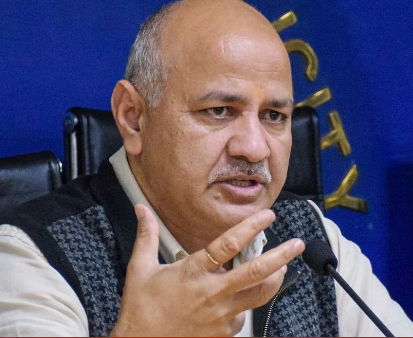The Supreme Court on Monday refused to grant bail to former Delhi Deputy Chief Minister Manish Sisodia in two cases filed by the Central Bureau of Investigation (CBI) and the Enforcement Directorate (ED) related to the Delhi Excise Policy case.
The verdict was delivered by the Bench of Justice Sanjiv Khanna and Justice SVN Bhatti.
On October 17, the Bench of Justice Sanjiv Khanna and Justice S.V.N. Bhatti had reserved its verdict on the bail applications of Sisodia in relation to the cases under the Prevention of Corruption Act and the Prevention of Money Laundering Act
The Bench of Justice Sanjiv Khanna and Justice SVN Bhatti had reserved its verdict on two separate bail petitions, which were filed by the Aam Aadmi Party leader.
The bench took this decision after hearing Senior Advocate Abhishek Singhvi, counsel of Manish Sisodia, and Additional Solicitor General SV Raju, who represented the Central Bureau of Investigation (CBI) and the Enforcement Directorate (ED).
The Supreme court was apprised by the Enforcement Directorate (ED) that it was considering adding the Aam Aadmi Party (AAP) as an accused in its money laundering probe, which was linked to the Delhi government’s now-scrapped excise policy.
The Apex Court told the CBI and ED that they cannot keep Sisodia in jail for an “indefinite period” in the excise policy cases.
The Bench of Justice Sanjiv Khanna and Justice S.V.N. Bhatti, while hearing two bail petitions filed by the former Delhi Deputy Chief Minister on October 5, had asked the national agencies whether there was any indication to establish money laundering by Sisodia factually and legally.
Additional Solicitor General SV Raju, representing both CBI and ED, said that the question was not whether Sisodia was directly or indirectly involved in illegal activity or process, but whether he was involved or not. When a policy was made which triggered bribes, it acted as proceeds of crimes.
The Bench then pointed out that generation of money was not an offence under Section 3 (of the Prevention of Money Laundering Act/ PMLA), to which the ASG replied that unless money existed, it cannot be put to use.
The Apex Court observed that it might be a lacuna (generation of money not being an offence under PMLA), but then the problems may come up.
The Bench sought clarification on whether the investigative agencies were challenging the Delhi government’s Excise Policy 2021-22.
The ASG submitted that the agencies were not challenging the policy decision, reiterated his submission that the policy in question was framed in a manner which benefitted certain wholesalers and Sisodia had a role to play in the same.
He apprised the Apex Court that the policy was framed as a ‘facade’ to replace the old excise policy, which was not favoured by the Delhi government.
Sisodia had moved the Apex Court against the Delhi High Court, which refused to give him bail in the two cases filed by CBI and ED.


